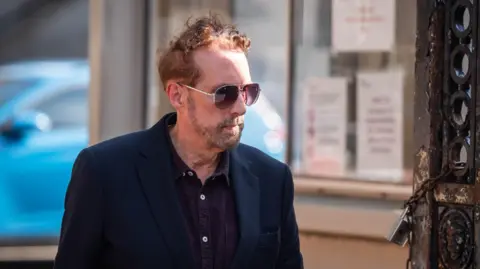In a significant and distressing case, a former priest has been found guilty of committing 17 counts of indecent assault against nine women. Christopher Brain, the 68-year-old ex-cleric, was prominently known for leading the evangelical movement called the Nine O’Clock Service (NOS), which was based in Sheffield during the late 1980s and into the 1990s. His reputation as a figure of religious authority has now been tarnished by this scandal, revealing an unsettling pattern of abuse that emerged from within the ranks of this church group.
The recent trial, which took place at the Inner London Crown Court, culminated in Brain’s conviction for the indecent assaults. However, he was acquitted of another 15 charges, and the jury is still deliberating an additional four charges of indecent assault, along with one related to rape. Brain, who resides in Wilmslow, Cheshire, showed little emotional response as the jury read their verdicts, a testament to the complex and often troubling nature of such high-profile legal proceedings.
Throughout the trial, significant testimony was provided by prosecutor Tim Clark KC, who painted a disturbing picture of Brain’s behavior. According to testimony, many of the assaults occurred after the victims were recruited into a so-called “homebase team.” This team was ostensibly tasked with assisting Brain and his family, but testimonies revealed a more sinister undercurrent. Women within this group came to be informally referred to as the “Lycra lovelies” or the “Lycra nuns,” illustrating the twisted environment in which Brain allegedly exploited his position of power.
It was revealed that these women were not merely assistants but were expected to perform various domestic chores and were subjected to sexual favors under the guise of service. Brain would often accept massages from his associates, which he characterized as efforts to alleviate “tensions” in his body. However, his claims of innocent intentions stood in stark contrast to the experiences shared by the women who detailed how these interactions escalated into assaults.
The Nine O’Clock Service, originally started in Sheffield in 1986, gained acclaim for its innovative, nightclub-like worship services that attracted a large young audience. Brain’s rapid rise within the Church of England included a fast-tracked ordination in 1991, bolstered by the group’s popularity, which at one time included extravagant expenditures for ceremonial robes reminiscent of those worn by actor Robert De Niro in the film “The Mission.” As the NOS expanded and moved venues to Ponds Forge leisure center in the early 1990s, its atmosphere reportedly shifted into something more cult-like, drawing critical concerns about Brain’s behavior.
The movement, thriving on the enthusiasm of young adults, eventually came under scrutiny due to the severity of the allegations against Brain. In 1995, the group was disbanded when the first whisperings of Brain’s misconduct began to surface. Adding to the complexities, a BBC documentary aired that year, where Brain admitted to “improper sexual conduct.” Notably, he resigned from his ministry just two days prior, casting additional shadows over his character and integrity.
As the jury prepares to revisit court for the remaining counts of indecent assault and the charge of rape, the implications of this trial extend far beyond Brain himself. This case highlights critical issues within religious organizations concerning power dynamics, trust, and abuse. It serves as a poignant reminder of the need for vigilance and accountability in all institutions, particularly those that serve vulnerable populations. As society grapples with these revelations, many questions linger about how such abuses can be prevented in the future, ensuring that faith communities remain safe environments for all congregants.












